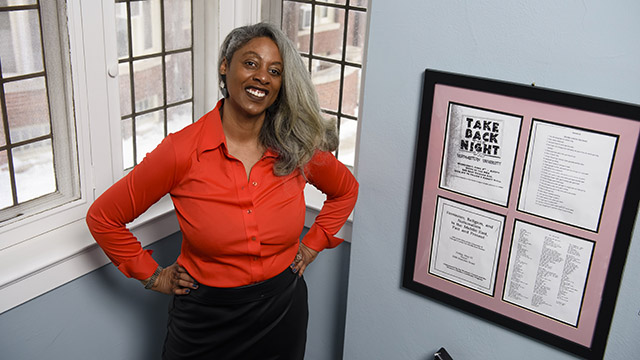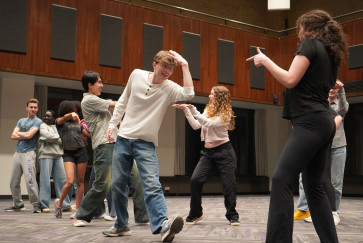In celebration of Women’s History Month, the Women’s Center will bring the campus community together by hosting a number of programs focused on this year’s annual theme Mutual Aid and Community Engagement.
On March 8, the center will acknowledge International Women’s Day with an hour-long celebration, where they will announce the winner of this year’s Shujaa Award. The center will also present its annual Symposium on March 9 and feature a plenary conversation between activist scholars Dean Spade and Kelly Hayes.
Sekile Nzinga, the director of the Women’s Center, discussed the upcoming events, initiatives,and shared her vision for the Women’s Center in 2021. Check out our most recent Q&A with Nzinga where she reflects on her time serving as interim chief diversity officer.
With Women’s History Month coming up, what’s on the schedule?
I’m so very excited that the Women's Center will bestow the Shujaa Award on International Women’s Day — March 8 — to honor a Northwestern staff member whose service to the work of gender justice, equity, and inclusion demonstrates courage, tenacity, and an ethic of care. Nominations are open until Feb. 26, and we hope our campus community will join us at our International Women’s Day reception to celebrate gender equity in action!
Also, our annual Women’s History Month symposium will be held on March 9 and will bring our annual programming theme into deeper focus by featuring Dean Spade, trans activist, educator and author of “Mutual Aid: Building Solidarity During This Crisis (And the Next)” and Kelly Hayes, a local Native American journalist and community organizer. Spade and Hayes will be in conversation about the critical significance of mutual aid efforts before, during and after crises like the COVID-19 pandemic that have helped to sustain so many in our communities. The symposium will also include a panel with local organizations that have developed mutual aid projects within Chicago and Evanston communities. Please do join us!
What’s the history behind the Shujaa award?
In March of 2018, the Women's Center recognized our associate director, Njoki Kamau, for her long serving role at the center and in support of women and other marginalized people on our campus. Njoki, originally from Kenya, who is also a former Northwestern doctoral student and has been a staff member at the Women’s Center for over 28 years, is a champion of gender equity and a catalyst for change at Northwestern. It was fitting that we entitle her award in 2018 the Shujaa award. Shujaa is a Swahili word that means "courageous" or “brave.”
What’s next for the Women’s Center?
The Women’s Center is booming with new energy and innovation this year despite the pandemic. In many ways, there are two current threads of our work. The first, our ongoing initiatives and the second, our unique response to COVID-19. Both streams of work are in addition to expanding our work to center the experiences of trans and non-binary faculty, staff and students through the Gender Inclusive Initiatives.
What is your vision for the Women’s Center?
My vision for the Women’s Center is to become a site for education and intellectual engagement, which is influenced by my background as a professor.
This year that focus has allowed our center to expand our partnerships across the University to form collaborations with academic units like Gender and Sexuality Studies. I am so excited to partner with my colleague, Paola Zamperini, professor of Asian Literature and Cultures and Gender and Sexuality Studies, who has aligned her Winter 2021 graduate colloquium with our programmatic theme this quarter.
What partnerships does the Women’s Center have?
Our center continues our ongoing supports and services. We truly enjoy our collaborations with the Office of Equity, CARE, and Human Resources as we work together to offer support to our dedicated staff before and since COVID-19.
Our dialogue series Caring for Ourselves and Others as We Navigate Change has been well received by our staff. Our series, Recognizing Collective Trauma Support Spaces is open to staff, faculty, graduate and undergraduate students and is in collaboration with CARE and CAPS. This is just a sampling of our supports and services, but I do encourage our campus community to join our list serve to get access to our wonderful newsletter, written by our program coordinator and Weinberg alum, Melisa Stephen, and stay up to date with our programming and events.
See the Women’s Center website for more information about Mutual Aid and Community Engagement programming, as well as symposium registration.


